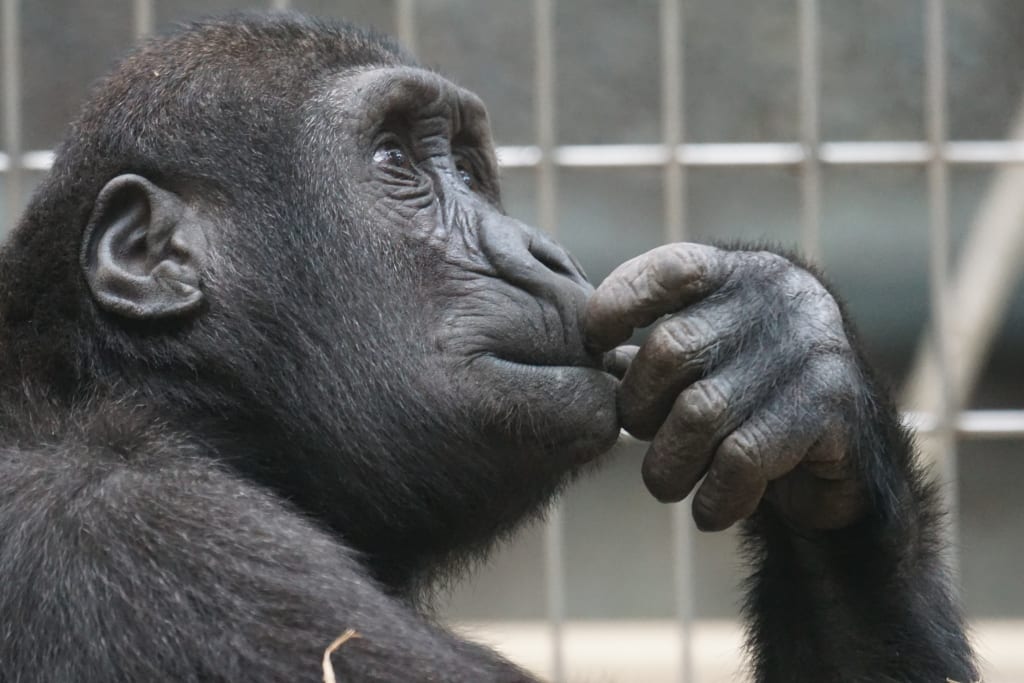Decoding the Animal Kingdom: What We Would Hear If We Could Understand Animals
Unraveling the Secret Language of the Natural World for a More Harmonious Future

What would we hear if we could understand animals? It's a fascinating question that has been the subject of speculation and inquiry for centuries. While we can't say for sure what animals are thinking or saying, recent research has shed some light on the ways in which animals communicate with one another and with us. Here's a look at what we might learn if we could understand animals:
Firstly, we would likely discover that animals are far more intelligent and complex than we previously thought. Studies have shown that animals have highly developed social structures, sophisticated problem-solving abilities, and even a sense of morality. For example, elephants are known to exhibit empathy and mourn their dead, while dolphins have been observed exhibiting cooperative problem-solving behavior. If we could understand their communications, we might find that animals are capable of expressing complex emotions and thoughts, much like humans.
One of the most intriguing areas of animal communication is vocalizations. Many animals, from birds to primates, have complex vocalizations that allow them to convey information to one another. For example, birdsong is not just a beautiful melody, but also a way for birds to establish territory and attract mates. Similarly, primates have a wide range of vocalizations that allow them to communicate about food, danger, and social status. If we could understand these vocalizations, we could gain a deeper understanding of the social structures and behavior patterns of animals.
We would also learn more about the interconnectedness of the natural world. Animals communicate with one another in a variety of ways, from vocalizations to scent marking to body language. By understanding their communications, we could gain a deeper appreciation for the complex web of relationships that exist in ecosystems around the world. For example, studies have shown that elephants can communicate over long distances using low-frequency sounds that humans cannot hear. If we could understand these communications, we might be able to better understand the migratory patterns of animals and the role that they play in maintaining the balance of the ecosystem.
Another benefit of understanding animal communication would be the potential for improved human-animal relationships. Many people already have close bonds with their pets, but imagine being able to understand what your furry friend is thinking and feeling. This would not only make us better pet owners but could also have implications for conservation efforts and animal welfare more broadly. For example, researchers have developed devices that use machine learning to analyze vocalizations and body language in order to detect signs of stress in animals. If we could accurately interpret these signals, we could take steps to reduce stress and improve the welfare of animals in captivity.
However, it's important to acknowledge that there could also be challenges associated with understanding animal communication. For example, if we could understand the pain and suffering of animals raised for food or used in medical research, it could lead to increased ethical concerns and push for more humane practices. There could also be cultural and linguistic barriers that would need to be overcome in order to accurately interpret animal communications.
In conclusion, while we can't say for certain what animals are saying or thinking, the potential benefits of understanding animal communication are vast. By gaining a deeper understanding of the natural world and our place in it, we could improve our relationships with animals and work towards a more harmonious and sustainable future. As we continue to develop new technologies and insights into animal behavior, we may one day be able to unlock the secrets of the animal kingdom and gain a new appreciation for the incredible diversity of life on our planet.
About the Creator
Enjoyed the story? Support the Creator.
Subscribe for free to receive all their stories in your feed. You could also pledge your support or give them a one-off tip, letting them know you appreciate their work.






Comments
There are no comments for this story
Be the first to respond and start the conversation.